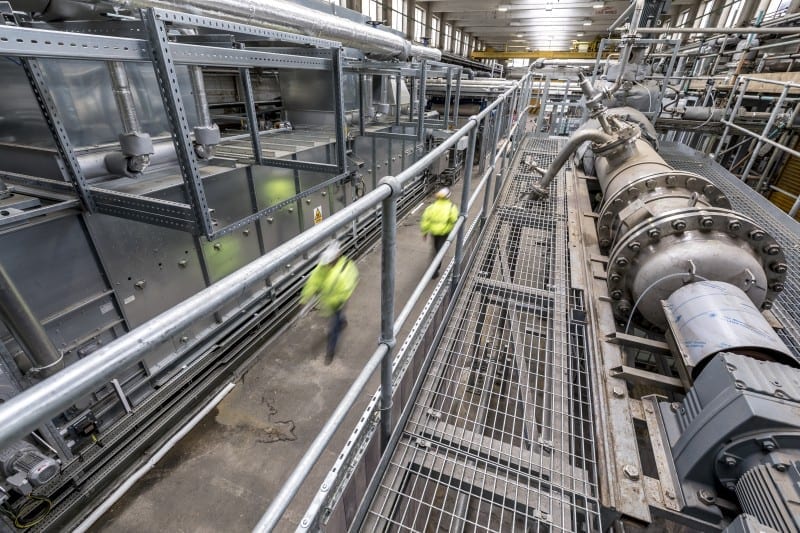23rd July 2021
Nova Pangaea shortlisted with BA and Lanzajet to develop sustainable aviation fuel
BRITISH AIRWAYS, LANZAJET, AND NOVA PANGAEA TECHNOLOGIES SHORTLISTED FOR FUNDING FROM GREEN FUELS, GREEN SKIES COMPETITION TO DEVELOP SUSTAINABLE AVIATION FUELS VIA PROJECT SPEEDBIRD
- Project SPEEDBIRD supports the development of the UK Sustainable Aviation Fuels (SAF) sector to build SAF production technologies at a commercial scale so the UK aviation sector can kick start its emission reductions
- Funds awarded from Green Fuels, Green Skies competition will support the early-stage development of UK SAF plants
- Project SPEEDBIRD will recycle carbon from local UK wood waste and turn it into SAF, enabling a significant step forward in decarbonizing aviation
Nova Pangaea Technologies, British Airways and LanzaJet and have been shortlisted for funding from the UK’s Department of Transport’s Green Fuels, Green Skies (GFGS) competition to develop the UK’s first sustainable aviation fuel (SAF) production facility utilizing UK wood waste. The amount of waste wood processed in the UK increased by six per cent to 3.98 million tonnes in 2019, according to the Wood Recyclers Association (WRA).
The Department for Transport’s Green Fuels, Green Skies competition is part of the Prime Minister’s Ten Point Plan for a Green Industrial Revolution announced in November 2020. Competition funds will be used to support the early-stage development of SAF plants, referred to as “Front End Engineering Design (FEED),” “Pre-FEED,” and “Feasibility” stages of a project’s development lifecycle. The collaboration, called “Project Speedbird,” supports the development of the UK SAF sector towards deploying innovative SAF production technologies at a commercial scale that can reduce emissions from the aviation sector. The goal is to produce 100 million litres of sustainable fuel per year starting in 2025, to meet the large SAF supply-demand gap in the UK. The fuel produced would power 2,000 flights from London to New York operated by an A350 aircraft.
The integrated technology platform is based on Nova Pangaea’s REFNOVA® process of converting lignocellulosic feedstocks, such as waste wood and biomass, into sustainable biocarbon, biochemicals, biopolymers, and drop in for biofuels. LanzaJet’s alcohol-to-jet (ATJ) technology will convert the ethanol to Synthetic Paraffinic Kerosene (SPK) and Synthetic Paraffinic Diesel (SPD) to produce sustainable aviation fuel and renewable diesel. Leveraging the technologies from this partnership, the plant will convert wood waste to sustainable aviation fuel in the UK, recycling carbon from local UK wood waste and helps decarbonize aviation and support the production of Sustainable Aviation Fuels in the UK.
Sarah Ellerby, Nova Pangaea Technologies CEO, said:
“In order to deliver the transport decarbonisation plan, we need to increase and accelerate investment in technologies that will deliver the net zero mandate. We want the UK to be a world leader in SAF and to do this we have to be ambitious and embrace innovation. We plan to deliver the first UK based end-to-end sustainable value chain from UK wood waste and residues to SAF. We are not only proud to partner with British Airways and LanzaJet but proud that the UK is leading the charge to decarbonise aviation.”
Sean Doyle, British Airways Chairman and CEO, said:
“We’re determined to transform the sustainability of our industry and this funding from the Government’s Green Fuels, Green Skies competition is critical in helping us to show the feasibility of building sustainable aviation fuel plants. These plants would be a game-changer for our industry, not only delivering sustainable aviation fuel but also creating many hundreds of highly skilled jobs while increasing economic growth around the UK. Our parent company, IAG, was the first European airline group to commit to powering 10 per cent of flights with sustainable aviation fuel (SAF) by 2030 – purchasing one million tonnes of SAF each year, the equivalent to taking a million cars off Europe’s roads each year. We look forward to pushing forward with this project, which is one of many we’re working on as we head towards our target to decarbonise and reach net zero carbon emissions by 2050.”
Jimmy Samartzis, LanzaJet CEO, said:
“This project is vital to our mission in expanding SAF on a global basis to help it achieve net-zero. The conversion of wood waste to SAF in the UK helps decarbonize aviation and recycles carbon from local UK wood waste. At LanzaJet, we’re in a unique position with ready and scaling technology to produce lower-carbon, sustainable fuels. Our partnership with British Airways and Nova Pangaea provides a novel and important integrated solution for the UK. Together we are grateful to the Prime Minister and Department for Transport for their support in advancing the production of sustainable aviation fuel in the UK.”
